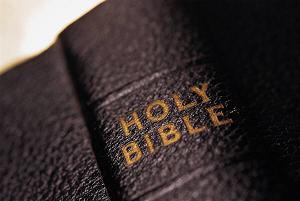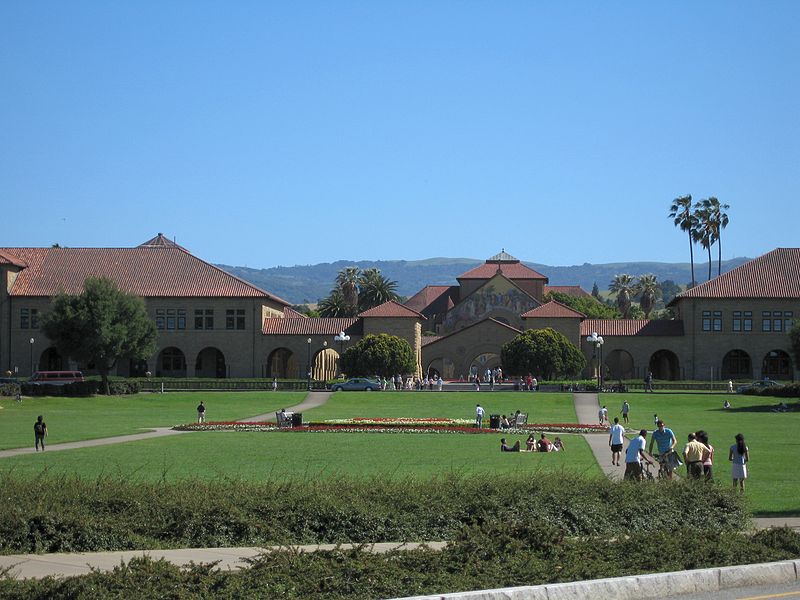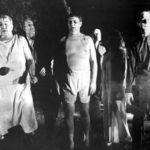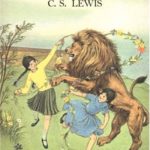On Giving Offense And Being Offensive
Today it seems as if being offensive is cause for intolerance.
Last week I read a portion of an address the former provost of Stanford University delivered to the board of trustees of that school. In it, he decried the trend toward intolerance in an academic environment. I found the article because one of my Facebook friends posted a response published in Slate.
If you are unfamiliar with Slate, here’s the Wikepedia description:
Slate is an online liberal / progressive magazine that covers current affairs, politics and culture in the United States.
Given that piece of information, it’s clear what angle the article took in responding to the charge that academic institutions, Stanford University specifically, have become too intolerant. The Slate article, in fact, is titled “In Praise Of Intolerance.”
Yes, you read that correctly: intolerance. The goal, you see, is truth, according to Alan Levinovitz, the author of the article. To make the point, he references hatred and the Holocaust, then this:
Likewise, biologists reject creationism not because it is intolerant of evolution, but because it is wrong. The same is true when immunologists reject vaccine skepticism. White supremacists, creationists, and vaccine skeptics refer to their exclusion from higher education and mainstream media as a form of intolerance. And they’re right—academic institutions are intolerant of their views. Yet we can all agree that Stanford needn’t change its hiring practices. Those who strive to stamp out these dangerous views are intolerant, but justly so. (Emphasis mine).
So, creationism, according to Mr. Levinovitz, is an intolerant view. An offense, you might say. Because that’s what the charge is in these institutions: students are offended when a Christian organization like Interversity, requires that those in student leadership should be Christians. Because, you see, requiring Christian organizations to be run by Christians is apparently discriminatory.
As I recall, Christian student groups have been allowed back onto University of California campuses, but new legislation in the state government came up this past summer affecting private colleges and universities regarding transgender issues. For now the bill has been withdrawn, but the point is clear: as a culture, we are, in the name of tolerance, moving more and more toward intolerance.
Ironically, the document considered the Law of the Land in the United States, contains an amendment insuring that those of us who hold opinions others find intolerant, still have a right to speak.
But Mr. Levinovitz would seem to take the view that those holding “wrong ideas” ought not be allowed to publish them or voice them in a public place like a university campus.
The longtime best-selling book of Christian apologetics—C.S. Lewis’ Mere Christianity—calls for religious nationalism (“all economists and statesmen should be Christians”) and argues that God wants men to be the head of the household. These are popular ideals, but they are poisonous and deserve fierce resistance, not complacent tolerance.
 So the ideas C. S. Lewis espoused, even ones taken out of context, apparently, ought not be tolerated. Was Lewis giving offense? Or are those who disagree with him simply offended because they find his conclusions in contradiction to their own?
So the ideas C. S. Lewis espoused, even ones taken out of context, apparently, ought not be tolerated. Was Lewis giving offense? Or are those who disagree with him simply offended because they find his conclusions in contradiction to their own?
The question is, how soon will Lewis be ousted from university bookstores? Will students be able to find copies of the Narnia books or his space trilogy in their libraries? Or in any library, if Mr. Levinovitz’s ideas about intolerance become widely accepted?
And what about the books of today. Should writers strap on the veneer of the tolerant in order to have a chance to be published in the general market? Just recently I heard about a wonderful manuscript that speaks to some of our western society’s raw wounds regarding racism. Can that story break through the barriers of traditional publishing? Unlikely, given the sensitivity with which publishers approach new books.
Christian publishers have their sensitivities, too. They want clean fiction, stories that are not negative toward Christianity, that have an element of faith. They would perhaps be seen as intolerant of stories that contain scenes of promiscuity and language laced with profanity.
Ought general market publishers have tolerance toward, say, transgender issues, but not toward pro-life issues? I suppose those that own those publishing companies can choose which ideas to support and which to label as an offense.
The real question is this: are Christians ready to be marginalized further? Are we preparing to share the gospel regardless of how offensive the culture finds it or how offended people claim to be?
 I’ve long said that Christians are not to be offensive in the way we speak, but the Bible itself says the message of the gospel is offensive to those who are perishing. To tell people they are sinners, is offensive. To say that some are saved and some are not, is to appear in the eyes of our culture to be discriminatory. To be hateful. To hold a position that ought not to be tolerated.
I’ve long said that Christians are not to be offensive in the way we speak, but the Bible itself says the message of the gospel is offensive to those who are perishing. To tell people they are sinners, is offensive. To say that some are saved and some are not, is to appear in the eyes of our culture to be discriminatory. To be hateful. To hold a position that ought not to be tolerated.
The point is, the more Christians withdraw from the culture, the more we fail to engage the offensive questions publicly, the less likely we will be to do so at all in another twenty years.
Are we to outshout those who say the kinds of things Mr. Levinovitz said—that creationism is wrong and not to be tolerated? That’s not the most effective approach, I don’t think, and it’s not the one the Bible endorses.
We are to make disciples, Jesus said before He left earth. We are to go into all the world and preach the gospel. But we are also to live as salt and light.
So I wonder, are Christian novels today shining light? Yes, I realize we, the actual, physical people who follow Christ, are to be salt and light. But how do we show our light if not by what we do and say and think? How do we influence and affect the culture around us, giving flavor and providing the preservative power of the gospel, if not by what we say and write?
In the end, are we an offense to those around us or are they responding, one way or the other, to the truth of God’s word, live out in what we Christians do and say and write?










































“I heard about a wonderful manuscript that speaks to some of our western society’s raw wounds regarding racism. Can that story break through the barriers of traditional publishing? Unlikely, given the sensitivity with which publishers approach new books.”
Not sure which manuscript it was that you were hearing about, but right now Angie Thomas’s THE HATE U GIVE, which deals strongly with that very subject, is #1 on the New York Times Bestseller list for the 2nd week in a row. (See article here: https://www.theguardian.com/books/2017/mar/26/angie-thomas-the-debut-novelist-who-turned-racism-and-police-violence-into-a-bestseller)
As far as I’ve seen, controversial social issues are not going to dissuade most traditional publishers — it’s the controversial religious and philosophical issues they balk at. Mind, that resistance isn’t consistent across the board: there’s a strong push in the children’s and YA community right now to publish more Muslim writers, for instance. But since Christians are still viewed as the oppressive, privileged majority in the US rather than a group that lacks representation or sympathetic treatment, there’s no such movement to promote books by and about Christians.
RJ, I think you’re right, but only some people can address some issues. A person of color can address racism, but a white person? I doubt it.
But I could be wrong about my friend’s book. She may self-publish, and then we’ll see how it’s received. But I’ll add, the main point of the story was never racism. It’s just as the climate in the US has become more racially charged, her book speaks to that issue in a way that makes it very relevant.
Interesting that there’s a push for Muslim writers. I don’t understand that. These publishers, if they are representative, are likely opposed to pretty much everything Muslims believe about culture and society. Yet they’re willing to overlook those differences while holding Christians at arm’s distance. Curious.
Becky
Ah, but Muslims are still a tiny and much-maligned minority in the US, often portrayed as terrorists and fanatics if they’re included in popular media at all, whereas Christians are seen as a strong and influential majority who are well represented in traditional fiction and don’t need anyone to stand up for them.
Personally I’d disagree with that, at least when it comes to traditional fiction written in the past fifty or sixty years: growing up in the 70’s and 80’s I would have loved to find even one sympathetic, intelligent Christian character in the general market books I was reading, but only found loathsome hypocrites, credulous fools, and a smattering of liberal theologians whose teachings sounded more like pop psychology than the Bible. It’s nearly impossible to explain the lack of decent Christian representation to non-Christians, though, because there’s still a widespread perception that any character who doesn’t clearly state otherwise is Christian by default. It seems bizarre and irrational to them, perhaps even evidence of some kind of warped persecution complex, that Christian readers wouldn’t see it the same way.
Yep, as I read your first paragraph, I was thinking, in what books are Christians “well represented”?
The thing that also throws me is that publishers are putting out books that most readers won’t identify with. I mean, burkas, sharia law . . . it’s not something most Americans can relate to. So they have to either misrepresent Muslims or manufacture some connection (feeling estranged from the culture, perhaps).
It just seems like an example of media pressing for an agenda that’s not really meant to sell books but to sell an idea.
Becky